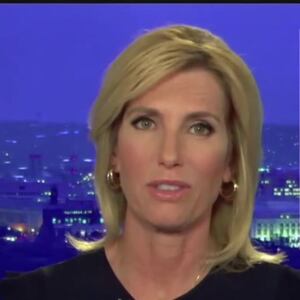It’s been a month since the police killing of George Floyd sparked mass protests across the United States and compelled various prominent Democrats and Republicans, including Donald Trump himself, to vow serious action and police reform. In that time, the president has lost interest in doing much of anything about it, according to two people who’ve discussed the matter with him in recent days.
“He’s done with that,” one of the sources said.
Never known for his sustained focus, the president’s mind has been particularly adrift this week, wandering to various tangential topics such as the desire to defend monuments and statues—particularly those honoring racist and Confederate figures of history—from being torn down by protesters. Late Monday night, Trump took to Twitter and began posting videos of random Black men attacking a white man and a woman, lamenting why social and racial justice protesters in America weren’t out in the streets about that instead. By Thursday morning, he was accusing leaders of the Black Lives Matter movement of treason and insurrection.
And he’s already signalled that should nothing on police reform get done, he will simply heap blame on his political enemies. When asked about the Senate reform bill on Wednesday, the president told reporters it would be nice if it were to pass but then accused Democratic politicians of wanting to “take away a lot of the strength from our police.”
Trump’s interest in police reform always appeared to be fleeting. But early on after the Floyd killing became national news, the White House put together stakeholder meetings and solicited ideas to create some sort of reform framework. Trump himself met with law enforcement officials and family members of victims of police killings.
But the president grew impatient. In mid-June, he signed an executive order that fell far short of what numerous reform advocates and protesters have been calling for, but did offer grant incentives to departments that increased their police training on use of force.
At that point, said the source who discussed the issue with Trump, the president believed he was basically done. “He believes his executive [order] was a home run,” the source said.
Alas, few feel the same way. But progress on filling in the massive gaps has proved difficult for lawmakers on the Hill and the window to craft a compromise has likely shut for the time being, possibly until after the election.
Democrats and Republicans’ dueling proposals, rolled out within days of each other earlier this month, had areas of common ground. But the Senate GOP bill, led by Sen. Tim Scott (R-SC), does not include several reforms that Democrats consider must haves, including an outright ban of the kind of chokehold that Minneapolis cop Derek Chauvin used to kill Floyd; a ban on the no-knock serving of warrants that led to Breonna Taylor’s killing by cops in Kentucky; or anything related to qualified immunity, which can shield officers from lawsuits stemming from their conduct on the job.
Instead, the Senate GOP bill emphasizes various areas of additional training for police officers and would establish a national database of cops’ records so that police departments know if potential hires have records of misconduct. The bill would also make lynching a federal hate crime.
Civil liberties groups have panned the measure, with the American Civil Liberties Union saying it “throws billions of dollars at studies and commissions when we know the real problem at the core of American policing.” And congressional Democrats have insisted that their House legislation should be the barometer for reform—Congressional Black Caucus chair Rep. Karen Bass’s (D-CA) bill, which passed the chamber on Thursday, addresses all the areas that Scott’s does not. They also say they are keenly aware that, no matter what happens, Trump will tout his own executive order as the be-all, end-all solution to police brutality.
“Regardless of how little Republicans actually do, how many more Black Americans are murdered or how many dog-whistles Trump sends, he will lie and claim he alone solved the problem,” said a Senate Democratic aide.
But Republicans like House GOP Leader Kevin McCarthy (R-CA) have accused Democrats of wanting to defund the police and “push[ing] bills that will make our officers less safe.” And Senate Majority Leader Mitch McConnell (R-KY) has argued that Democrats should focus on simply improving their chamber’s bill through the amendment process. Both he and congressional Republicans have aggressively blasted what they see as Democrats’ obstructionism: Scott, the Senate GOP’s only Black member, sought to torch Democrats in a floor speech Wednesday, arguing that they didn’t want to do anything now but instead wait until after the November elections to see if they won back the White House and the Senate, a feeling that is widely shared within the Senate GOP ranks.
Democrats, charged Scott, were working to “not allow this party to be seen as a party that reaches out to all communities in this nation.”
With negotiations coming to near a standstill, the White House could play a role in brokering some sort of compromise. But, so far, the president’s team has shown no interest in that route.
“The White House is behind Sen. Tim Scott’s bill, we’ve made that clear,” said a senior administration official. “The president acted, and acted quickly, but we’ve more or less exhausted the options that could be done through an [executive order] and need the legislative branch to act.”
Trump’s absence from the talks comes as his own advisers recognize the debate over police reform, and racial justice matters more broadly, could have a significant impact on his reelection. And it’s taking place as some have privately attempted to get him to engage on the matter more, mindful that they could tag former Vice President Joe Biden with having helped create the criminal-justice pitfalls that are consuming the United States today. But according to three sources familiar with the discussions, there is growing frustration that Trump routinely jumps between adopting a “tough on crime” persona and trying to grab the mantle of a criminal justice reformer—never comfortable settling on just one.
“He wants to have it both ways,” said one senior White House official.









